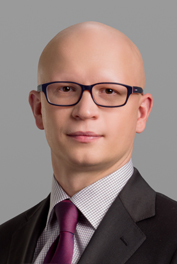Please note that the content below is more than three years old. Contact the author for an update.
Patents Go to Court
The Intellectual Property Court is the government's answer to the needs of investors, business community and the general public who all want effective professional justice in intellectual property matters.
Resolving IT disputes, especially patent cases, is known to be tricky, while their effective adjudication takes very special non-legal knowledge more often than not. A seemingly simple question if the respondent is using his own or someone else's patented technology is not by far legal. If the judge lacks knowledge or skill to address and assess such non-legal matters properly, he or she must rely entirely on forensic expertise, which means the case is actually prejudiced, if not decided, by forensic experts, not judges, which brings into question the court's impartiality and fairness.
Correct and uniform interpretation of legal rules is essential in justice — it underpins the legitimate hope that any dispute will be resolved equally and legally. If a patent has really been infringed, its holder can seek effective remedies, have the competitor removed from the market, and recover his ROI. If the patent has not been infringed, the holder will not be able to prevent the bona-fide manufacturer of a similar product from legitimate competition. Does the IPC meet these expectations? The answer is positive, even today.
In its Resolution No. SP25/3 of October 15, 2013 the IPC Presidium recommended lower courts prohibiting the delegation of Internet domain names allegedly infringing on trademark owners' rights, pending the adjudication. The courts should grant the injunction immediately on the plaintiff's motion without requiring evidence of any such delegation being prepared or threatening. This recommendation, crystallized in courts' practice, is wise and timely — it is very easy to delegate a contested domain name; and once it is delegated pending the judgment, it would be tricky for the trademark owner to take it over even if he prevails. He will have to sue the new domain registrant.
The IPC's holdings on interpretation of statutory law merit legitimate attention. The growing number of such holdings makes a body of authority increasingly looked to by all Russian courts and Federal Service for Intellectual Property (Rospatent) which resolves patent disputes as part of alternative dispute resolution process.
In resolving the dispute over the trademark 'GAGARINSKY', for example, the IPC Presidium addressed the question what conditions the registration of a trademark must meet to constitute an infringement on the name of a prominent person ('GAGARINSKY' was derived from the name of the first man in space). In doing so, the IPC Presidium did not stop short of reversing the trial IP court's judgment, which is a strong sign of judicial independence and a telling example of a contentious issue courts can have to deal with in an intellectual property case.
Remarkably, the IP Court is reluctant to commission ad hoc forensic expert assessments and evidence where Rospatent is sued by the holders of patents held invalid or by unsuccessful contesters of other holders' patents. Where the IP Court lacks technical expertise, it does turn to appropriate experts for assistance, but it will always investigate itself specific technical details and evidence. In one case, where it had to assess the novelty of a patented design, the IP Court consulted three doctors of science in different fields, but went on to assess the matter on its own. This is a clear sign of fair and exceptionally judicious approach to a complicated case.
The Intellectual Property Court's and its current approach to the resolution of IP cases are expected to matter increasingly more in the near future. A recent law abolishes the Higher Commercial Court, whose functions will be taken over by the Russian Supreme Court. Another bill, however, proposes to leave lower commercial courts in place. The IP Court will consequently remain in place, too.
Yet the legal community is well aware of the Supreme Court's usual slowness both in giving lower courts appropriate guidance and in acting on certiorari. The number of IP cases the SC will take up to review on certiorari for alleged judicial errors is likely to be negligibly small. The Intellectual Property Court will therefore be building intellectual property case law virtually alone, while its role in the economy and business will be growing.
The article was published in Russian Business Newspaper (No. 928)










